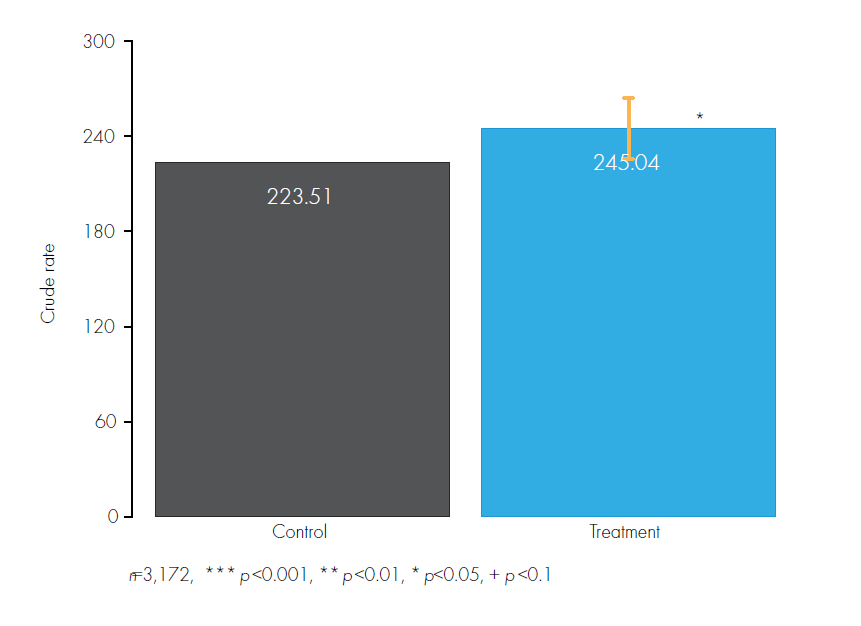Almost half the UK population will get cancer during their lifetime. The urgent cancer referral process – where GPs can refer patients to be seen by a specialist within two weeks – is the first route for early diagnosis in England. But referral rates vary substantially across the country, with many areas underusing the process.
We wanted to test the impact of social norm feedback on urgent referral rates. We thought that telling GPs how their referral decisions compared with local colleagues could help guide their referral behaviour.
We tested this hypothesis with 244 GPs in Greater Manchester who referred below the England average over 2017–2018. During that period, each practice received a short series of personalised letters. The GP practices we sent the letter to increased their urgent referral rate by 9.6 per cent.
Figure 1: Urgent GP referrals to cancer specialists

If scaled up in England for a 6-month period, our intervention could give earlier diagnoses for around 2,500 more cancer patients, improving their chances of survival. It would also generate savings of up to £20m to the NHS within six months thanks to the lower costs of early treatment.



